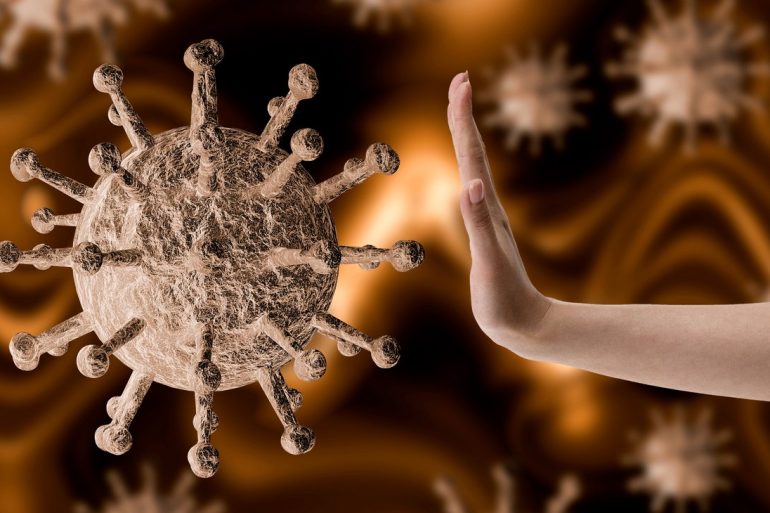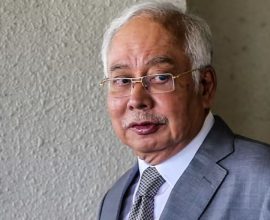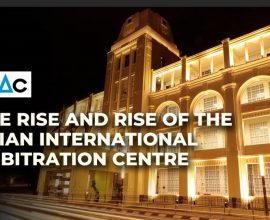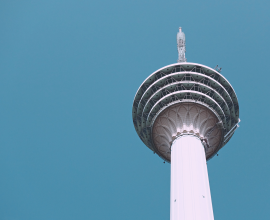What are the Government’s powers during the Covid-19 pandemic?
How far can the Government go during this partial lockdown? What are your rights? Here are some legal points you should know.
Because of the coronavirus threat, on 16 March, the Prime Minister announced a Movement Control Order over the entire nation.
Shortly afterward, the Government published a set of new regulations under an Act called Prevention and Control of Infectious Diseases Act 1988 (‘PCIDA’).1The Regulations were called ‘Prevention and Control of Infectious Diseases (Measures within the infected local areas) Regulations 2020 (‘the 2020 Regulations’).
Obviously, when the PCIDA was passed in 1988, it did not foresee the coronavirus.
It was designed for certain infectious diseases:2 these are listed in the First Schedule to the PCIDA
e.g. Cholera, dengue fever, diphtheria, Ebola, foot-and-mouth disease, leprosy, malaria, measles, plague rabies, syphilis, tetanus, measles, TB, typhoid, viral hepatitis, and whooping cough.
The Government does not list the coronavirus in the First Schedule of the PCIDA.
But the Minister may have, by now, included it, for he has powers to do so.3Section 30, PCIDA
The PCIDA gives large powers to the Health Minister.
He may decide what steps are to be taken to prevent the spread of the coronavirus.4Section 11(2) PCIDA
He may make regulations to achieve this aim.
He may order certain ‘Authorised Officers’ to help him carry out his duties.
If you were a Minister, what would you do?
“You need to remember several points for the next 14 days. Here they are:
[1]. Limit your movement – you cannot gather in groups
You cannot ‘make any journey’ from one place to another except for five purposes:
(a). to perform official duties;
(b). to perform and provide essential services;
(c). to purchase, supply or deliver food or daily necessities – which means you can go shopping for household needs;
(d). to seek treatment or other medical services;
(e) for any other purpose permitted by the Director General of Health.5Regulation 3(1)
[2] – What the Government does not allow
The Government does not allow the following activities:6National Security Council Letter dated March 18, 2020
- Agricultural markets
- Dining-in at any eatery
- Gymnasiums, Bars, Restaurants
- Night markets,
- Pubs,
- Restaurants ‘dining-in’
- Shopping Malls are to be closed, (save for sale of Groceries).
- SPAs
- Swimming pool services,
- Training facilities for Defence and securities services are to be closed.
[3] – You cannot move from one infected area to another infected area
You have to stay put.7Regulation 3(4)
[4]. Within an ‘infected area’, you cannot attend or organise any function for religious, sports, recreational, social or cultural purpose.
If the Government has declared an area as having been ‘infected’, none of these activities can take place. No mass birthdays, no marriages, no religious gatherings.
[5] – What about funerals?
Well, the regulations allow that, but require that the number of persons attending the ceremony to be kept to a minimum.8Regulation 3 (3)
[6] – Only premises providing ‘Essential services’ may be open
However, the definition of essential services is not explained by the Regulations.
[7] –What are ‘Essential Services’?
These have been described by the National Security Council.9In its letter dated 18 March 2020
They fall into 23 categories – and these activities are allowed.
- Airport and Seaport services;
- Transport by land, sea or air;
- Electrical and energy services;
- Financial services;
- Fire and rescue services;
- Food Deliveries;
- Food Drive-ins;
- Food preparation;
- Food takeaways;
- Fuel, gas, and lubrication services;
- Government’s and Statutory bodies’ Specialised Services including:
- Customs and Excise;
- Defence and Securities and services (training have been suspended);
- Immigration;
- JPJ (Public transport Department) services;
- Marine services;
- Printing and publications,
- Public information and Registration;
- Grocery sales:
- Groceries can be open; but customers are only allowed limited amounts of purchase per family. Delivery of groceries is allowed;
- Groceries in Malls are allowed;
- Hotels, homestays, and paid stay are allowed:
- (But patrons cannot leave their rooms during the quarantine;
- But they allow Room Service. Hotels may operate their kitchens, but only for Room Service;
- Immigration’s temporary detention centres, lock-ups;
- Medical services; waste control and disposal services;
- Online services are allowed as are also E-commerce services;
- Post and courier services;
- Prisons and remand services;
- Radio, telecommunication, information, and television services;
- Restaurants and hotels;
- Weather forecasting;
- Raw materials supply;
- Seaport services;
- Supply of food;
- Water de-pollution services;
- Wild Animal Management.
[8]. If you arrive in Malaysia from overseas, you must go for a health examination
If you are a local citizen or permanent resident within Malaysia or if you return from overseas you must undergo a health examination upon arrival even before you go for immigration clearance.10Regulation 4
[9] – Foreign countries may be declared ‘infected areas’
The Minister may declare that the particular area outside of Malaysia is to be designated as ‘an infected area’. When an area has been so declared, the Minister may prevent the introduction of any infectious diseases into Malaysia from that foreign country.11Section 6
He may, as he must have by now done, issue orders to prevent the ‘importation of infectious diseases’.12Section 6 and Part III of the PCIDA
[10] – Minister can declare a Local Area as ‘being threatened with an epidemic of an infectious disease’ – He has (and it seems to cover all of the nation)
The Minister may declare any local area as being ‘threatened with an epidemic of an infectious disease’.13Section 11 (1) Once he makes that order, it must be ‘gazetted.’14This simply means that the Government publishes its actions under a Government declaration, called ‘Gazette’
[11] – How long will the order last?
The Malaysian PCIDA Order was granted on 16 March. It came into force on 18 March. It will remain in force until 31 March 2020.
He can also extend the order.
However, the latest ‘2020 Regulations’ can only last until 31 March 2020 – because the regulations say so.
[12] – Who helps the Minister do his job? ‘Authorised Officer’
This can be anyone, including police and immigration officers, or even penghulus.
The Minister may appoint ‘any suitable person’ to be an ‘Authorised Officer’.
Such an Officer means any Medical Officer, a Health Care Officer, or a Health Inspector, or any Officer appointed by the Minister.
Naturally, this will include enforcement officers: the police, or RELA, for example.15Sections 2 and 3 of the PCIDA
Let us refer to them as ‘Officers’.
[13] – Who is a ‘Contact’?
A ‘Contact’ means any person who has been or is likely to have been – (note the word ‘likely’) – exposed to the risk – (note the word ‘risk’) – of contracting an infectious disease.
This includes any person arriving from an infected area.
So if you are arriving from China, Italy, or Iran, you’re done for.16Section 2 read with section 15
[14] – When a vehicle enters Malaysia, Officers can enter into Vehicles – and examine them
An Officer may conduct medical screening of a vehicle – or its occupants – upon its arrival in Malaysia. So also any article or animal onboard a vehicle or vessel.
[15] – A doctor can Detain or Quarantine you
If a doctor or an Officer believes that a person is infected, he may quarantine him for treatment. He may also detain the infected person until he is no longer dangerous to the public.
No time limit is prescribed.
Technically, a doctor can hold a patient down for months.17Section 14
[16] – The Government can conduct Surveillance over you, and impose Conditions
An Officer has, also, ‘surveillance powers’ over all such patients or suspected patients – and this can last until such time as the disease is ‘no longer communicable to others’.18Section 7(3(b)
‘Surveillance’ means you can be subject to periodic examinations: this is to ascertain the state of your health.
The Officer can also impose certain conditions on you for this purpose.19Section 3 read with Section 7
The Officers also have ‘observation’ and ‘surveillance powers’ over ‘Contacts’.20Section 15
[17] – You cannot import dead persons or their tissue into the country
The PCIDA also prevents the importation of any human remains to or parts thereof into Malaysia. It can also prevent the exportation of such material or pathogenic organism of substance out of Malaysia.21Section 8
[18] – You have a duty to report on other people
If signs of an infectious disease appear in your house, or in your company – if so, you must immediately notify the Officer in charge of the nearest District Health Office or Government Health Facility or Police Station or the nearest Village Head.22Section 10
If a doctor treats any patient or knows any person with an infectious disease, he must immediately notify the relevant authority.
A person in charge of any boarding house, or asrama has similar duties; so also a police officer, and a village head.
If any of them become aware of any person with an illness, then they have a duty under the law to report it to the relevant authorities.23section 10
[19] – If you are ill, you cannot risk infecting other people
If you suspect you are infected, you cannot act in a way that is ‘likely to spread infectious disease’.
You cannot risk infecting other people by your conduct – or by you being in any public place.
For obvious reasons, this restriction doesn’t become criminal if you are with members of your own family or if you stay home.24Section 12
If you suspect you are suffering from an infectious disease, but choose to contravene the Act, then you commit a criminal offence.25Sections 12 and 13
However, if you seek medical treatment, the PCIDA excuses you.26Section 12 (4).
[20] – You cannot ‘deal in’ contaminated articles or animals
If you know that an object or article is contaminated, or an animal is infected, then you cannot give, lend, sell, transmit, use, or expose such an article – or animal – before you disinfect it.27section 13 (1)
[21] – To make you comply, an Officer can use reasonable force
By now you might have seen some videos in the social media of police Officers assaulting what appear to be Oriental individuals for not wearing masks. This is forbidden.
Suppose an Officer gives an order to comply with his instructions: if you refuse, he may use force to make you comply.28Section 15(2)
[22] – The Government can examine corpses
If an Officer suspects that a person has died of an infectious disease, the Officer may remove the body to any place that he designates, and examine it.29Section 16
[23] – The Government can dispose of the dead
If a person has died – or is suspected to have died – of an infectious disease, an Officer can direct how the corpse is to be buried or cremated. The relatives of the deceased are not allowed to render final rites in any way contrary to the Officer’s instructions. If you do so, you commit an offence.30Section 17
[24] – Your premises can be closed off for disinfection
If an Officer believes a person with an infectious disease is on your premises, and that would be likely to lead to the outbreak of such a disease, the Officer has the power to do five things:
- He can enter any premises if he wishes to examine a person or an article in a building.31Section 18
- He can examine the person to determine if that person is infected.
- He may examine your premises or any article to see if they are contaminated or infected.
- The Officer can close off the premise until it is ‘thoroughly disinfected’.
- If any material or animal is found within such a building, the Officer may order it to be destroyed.
[25] – You cannot sell or rent your contaminated building unless you get a Certificate
If there has been a case of infectious disease in any building, the Officer can prohibit the owner or any person inhabiting it, from selling it, renting or leasing it without a proper Certificate from the Officer stating either that:
- the building ‘has been disinfected to the satisfaction of’ the Officer; or
- the building ‘need not be disinfected’.
If a person sells or lets out such a building, or any portion thereof, he is guilty of a crime.32Section 20
[26] – You can be ordered to disinfect vehicles used for carrying infected person
If a vehicle has been used to convey an infected person, the Officer may demand the vehicle to be disinfected.33Section 21
[27] – You cannot obstruct, impede or disobey any lawful order issued by an Officer
The operative word is, ‘lawful’. The officer cannot issue any order he likes.
But if an Officer issues a proper order designed to control or eradicate the contagion or disease, and you obstruct, or disobey it, that is a crime.34Section 22
[28] – You cannot refuse to furnish information, and you cannot give false information
That is an offence.35Section 22
[29] – The Government can take over your building, but you can demand compensation
If he thinks it will be useful for combating any infectious disease, the Director General of Health may, temporarily order requisition of your property.
There is no limitation on the duration in the requisition.
However, the Director General has a duty to disinfect it.
He may enter into an agreement with you, as the owner, for any compensation before the Government releases the building to you.
If you disagree on how much the Government should compensate you, then the quantum is to be determined by arbitration.36Section 26
[30] – The Government can seize, dispose, or destroy contaminated articles or animals
An Officer may seize any article or any animal which he thinks is ‘likely’ to have been contaminated or infected.
If the article cannot be thoroughly disinfected, but if you, as the owner of the article, or the animal, consent in writing, then the article or animal will be destroyed.
If you refuse to consent, the relevant Officer has to apply to a magistrate for an order of disposal.37Section 27
[31] – The Government may ask you to compensate it
If the Government has incurred for any expenses in treating any person in a vehicle – the Government may recover from the owner of the vehicle all that expense.
It can also bill you for the costs of performing the final rites of any person who dies of an infectious disease in a vehicle – or one who dies at the hospital thereafter.
If you refuse to pay, the Government may sue you and collect the monies as a civil debt.38Section 28
[32] – Prosecution and punishment
Any person guilty of any act or omission39that means not doing something that you should do under the PCIDA can be fined or imprisoned or can receive both punishments:
(a). For the first offence, the offender will be imprisoned for a maximum of two years – and he can also be fined.
(b). For any subsequent offence, the court may order imprisonment for a maximum of five years– and it can, in addition, order a fine.
(c). If the offender is mulish, the court can impose a further fine of a maximum of RM200.00 per day during which time such offence continues.40Section 24
[33] – A Compassionate power – the DG can compound any offence
The Director General41or any public or authorised officer under him has the power, under the PCIDA, to compound the offences.42Section 25
This allows the authorities to exercise compassionate power in deserving cases.
[34] – The Minister has wide powers
The Minister may exempt person, or any article, or any animal, from the operation of any provision of the PCIDA or the Regulations.43Section 30
The Minister may amend, or alter any of the provisions in the First Schedule.
He can also excuse any person, article, vehicle, human remains, or animal from clutches of the PCIDA or its Regulations.44Section 29
To carry the provisions of the PCIDA into effect, the Minister may make any regulations.45 Seesection 31; see also, e.g the 1988 and the 2020 Regulations
Stay Home…
Stay safe.
Get some sun.
[The author wishes to thank Ms KN Geetha, Mr GS Saran, Mr Prabhkirat Singh, Miss Kasturi Puvanesavaran, Ms Narkunavathi Sundareson, Mr. Gandhi Kasinathan and Miss Amuthambigai Tharmarajah for their assistance].





